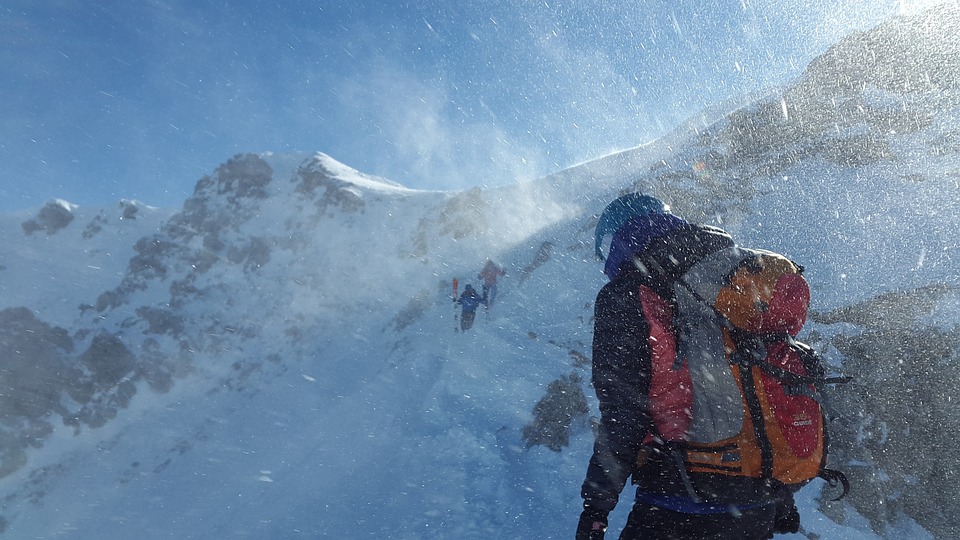Introduction
Skiing is a thrilling winter sport that offers an adrenaline rush like no other. If you’re new to skiing, it’s essential to acquire the necessary skills and knowledge before hitting the slopes. This article will provide you with valuable tips to help beginners master the art of skiing and enjoy a safe and exciting experience.
1. Proper Gear and Clothing
Before you start skiing, make sure you have the right gear and clothing. Invest in well-fitting ski boots, appropriate skis, and poles that suit your skill level. Dress in multiple layers to stay warm and choose waterproof and breathable outerwear. Don’t forget a helmet and goggles to protect yourself from potential injuries and harsh weather conditions.
2. Take Lessons
Enrolling in ski lessons is highly recommended for beginners. A professional instructor will teach you the correct techniques, body positioning, and how to balance while skiing. They can help you progress faster and ensure you learn the proper form from the start, reducing the risk of developing bad habits that can be difficult to correct later on.
3. Warm-Up and Stretch
Before hitting the slopes, it’s crucial to warm up your muscles and stretch properly. Skiing is physically demanding, and preparing your body will help prevent injuries. Perform dynamic stretches like leg swings, lunges, and arm circles to loosen up and get your blood flowing. This warm-up routine will enhance your skiing performance and decrease the chance of muscle strains.
4. Learn to Fall and Get Up
Falling is part of learning to ski, even for experienced skiers. One essential tip is to learn how to fall safely to minimize the risk of injury. Try to relax and protect your head and limbs by keeping them close to your body. When it’s time to get up, turn onto your knees, plant your uphill ski, and push yourself up, using the poles for support. Practice this technique on a gentle slope to build confidence and speed up the process.
5. Start with Easy Terrain
When you’re ready to hit the slopes, choose beginner-friendly terrain to build your skills gradually. Green or blue slopes are ideal for honing your technique and gaining confidence. Avoid extremely steep or advanced trails until you’ve mastered the basics. Focus on proper posture, weight distribution, turning, and stopping techniques. As you progress, you can advance to more challenging runs.
6. Be Mindful of Speed and Control
As a beginner, it’s crucial to maintain control and regulate your speed. Avoid going too fast if you’re not yet comfortable, as it can lead to accidents. Use your edges to control your speed and practice making wide, controlled turns. Stay in control at all times and be aware of other skiers around you to ensure a safe skiing experience for everyone.
7. Stay Hydrated and Take Breaks
Skiing is physically demanding, so it’s essential to stay hydrated and take regular breaks. Being at a higher altitude can cause dehydration, so drink plenty of water throughout the day. Take breaks in between runs to rest, refuel, and avoid fatigue. Listen to your body and don’t overexert yourself, especially in the early stages of learning to ski.
8. Respect Mountain Etiquette
Respect for others and the mountain environment is essential in skiing. Follow the International Ski Federation (FIS) rules and adhere to mountain etiquette. Yield to skiers below you, look uphill before merging onto a trail, and always give those in front of you the right of way. Avoid stopping in the middle of a trail, and be mindful of respecting nature and keeping the slopes clean.
9. Practice Regularly
Like any sport, regular practice is key to improving your skiing skills. The more time you spend on the slopes, the faster you’ll progress. Consider making skiing a regular part of your winter routine to reinforce your technique and build muscle memory. The more you practice, the more confident and comfortable you’ll become on the slopes.
10. Stay Positive and Have Fun
Lastly, skiing is all about enjoying the experience and having fun. It’s natural to feel a bit overwhelmed as a beginner, but remember to stay positive and embrace the learning process. Focus on your successes and progress, and don’t be afraid to laugh at yourself when things don’t go as planned. With practice and perseverance, you’ll soon be conquering the slopes with confidence and joy.
FAQs
What equipment do I need to start skiing?
To start skiing, you will need ski boots, skis, poles, a helmet, goggles, and appropriate clothing (layers, waterproof outerwear, gloves, and warm socks).
How long does it take to learn how to ski?
The learning curve for skiing varies for individuals. With proper instruction and regular practice, beginners can usually gain confidence and ski on beginner slopes within a week or two.
Do I need to be physically fit to ski?
Being physically fit can enhance your skiing experience, but skiing can be adapted to different fitness levels. Starting with shorter skiing sessions and gradually increasing your time on the slopes will help you build endurance and strength over time.
Can I learn skiing without taking lessons?
While it is possible to teach yourself to ski, taking lessons from a certified instructor is highly recommended. Learning from a professional will help you avoid developing bad habits and ensure you learn the proper techniques and safety procedures from the beginning.
What should I do if I feel overwhelmed or scared while skiing?
If you feel overwhelmed or scared while skiing, it’s important to communicate with your instructor or skiing companions. Take a break, gather yourself, and remember to start on easy slopes to gradually build confidence. It’s normal to have moments of doubt, but with practice and perseverance, you’ll overcome them.





